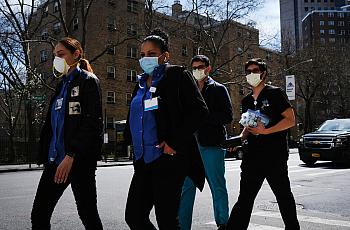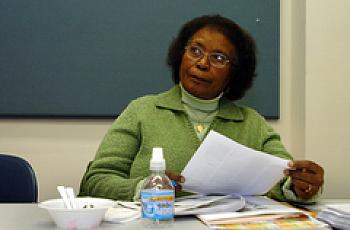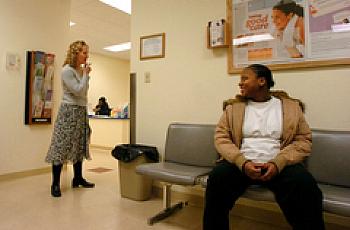
I'm a former newspaper and trade magazine reporter who covers the business, financing and delivery of healthcare. I'm a former Kaiser Fellow and a co founder of the Association of Health Care Journalists.

I'm a former newspaper and trade magazine reporter who covers the business, financing and delivery of healthcare. I'm a former Kaiser Fellow and a co founder of the Association of Health Care Journalists.

Many others, especially those in rural areas, will go out of business.

<p>A journalist examines the state of health in his home town of Gary, Ind. and finds that his coverage sparks community-wide conversation and change.</p>
<p>This story is Part 15 of a 15-part series that examines health care needs in Gary, Ind.</p><p class="body.text">How will health care reform impact Gary and its citizens?</p> <p class="body.text">While the Republican-dominated U.S. House of Representatives voted to repeal the Accountable Care Act of 2010, the U.S. Senate isn’t likely to follow suit, meaning the landmark health reform legislation will continue to change the way many Americans receive health care.</p>
<p>This story is Part 14 of a 15-part series that examines health care needs in Gary, Ind.</p><p class="body.text">When Shantray Hooks, of Gary, lost her job as a restaurant cook in August, she didn’t know how she would pay for doctor visits.</p> <p class="body.text">“I had no health insurance and I couldn’t afford to pay a doctor,” said Hooks, 29, who was diagnosed with diabetes several years ago.</p> <p class="body.text">A doctor referred her to the Community Health Net of Gary, a federally qualified community health center that provides comprehensive primary care health services and charges on a sliding fee scale for services.</p>
<p>This story is Part 13 of a 15-part series that examines health care needs in Gary, Ind.</p><p class="body.text">The health of a city’s residents is inextricably linked to its economic vitality, according to historians, and the business and political leaders of Gary.</p> <p class="body.text">They said the high rates of chronic disease and infant mortality plaguing Gary did not occur in a vacuum, but resulted from 40 years of urban decline, generations of poverty and high unemployment, a lack of access to health care providers, poor lifestyle choices, historic racism and an evolution in American manufacturing that collectively have decimated industrial urban America.</p> <p class="body.text"> </p>

<p>This story is Part 12 of a 15-part series that examines health care needs in Gary, Ind.</p> <p>John Grimm knows the city of Gary faces severe financial problems and didn’t expect city crews to plow all of its streets overnight after the recent blizzard.</p><p class="body.text">But Grimm, the
<p>This story is Part 11 of a 15-part series that examines health care needs in Gary, Ind.</p> <p class="NormalParagraphStyle">Nearly 33 years after the federal government designated Gary a health professional shortage area and 17 years after federal health authorities qualified it as a medically underserved area, Gary continues to suffer from physician shortages.</p> <p class="body.text">Those shortages are partially to blame for the poor health status of many Gary citizens, according to local doctors and hospital officials.</p> <p class="body.text">Gary is home to disproportionately high numbers of severely ill patients suffering from multiple potentially life threatening conditions, including heart disease, kidney failure, diabetes, hypertension, obesity and asthma.</p>

<p>This story is Part 10 of a 15-part series that examines health care needs in Gary, Ind.</p><p>Methodist Hospitals’ financial turnaround has impressed hospital analysts and bond ratings agencies.</p><p class="body.text">In May, New York bond-rating firm Standard & Poor’s changed its outlook

<p>This story is Part 9 of a 15-part series that examines health care needs in Gary, Ind.</p><p class="body.text">Dorothy Manley knew something was wrong nine years ago because whenever she ate sweets, she grew sleepy.</p> <p class="body.text">Manley, 77, of Gary, visited a local health fair and was

<p>This story is Part 7 of a 15-part series that examines health care needs in Gary, Indiana.</p><p class="body.text">Every dollar invested in a community health center yields returns beyond that investment, said an official of the association representing such centers in Indiana.</p><p>“Not on